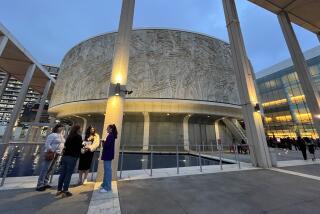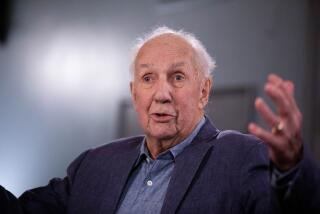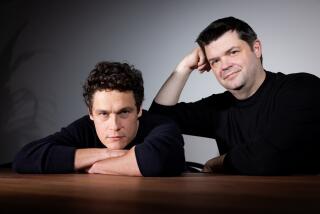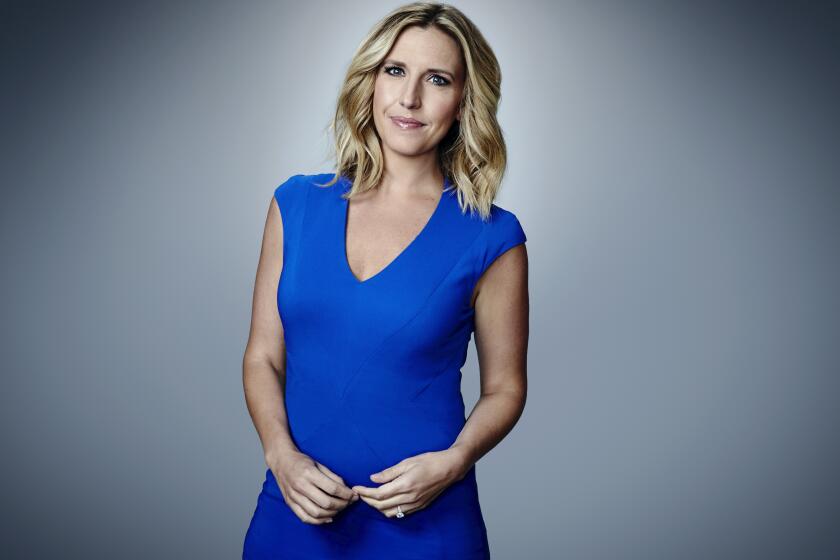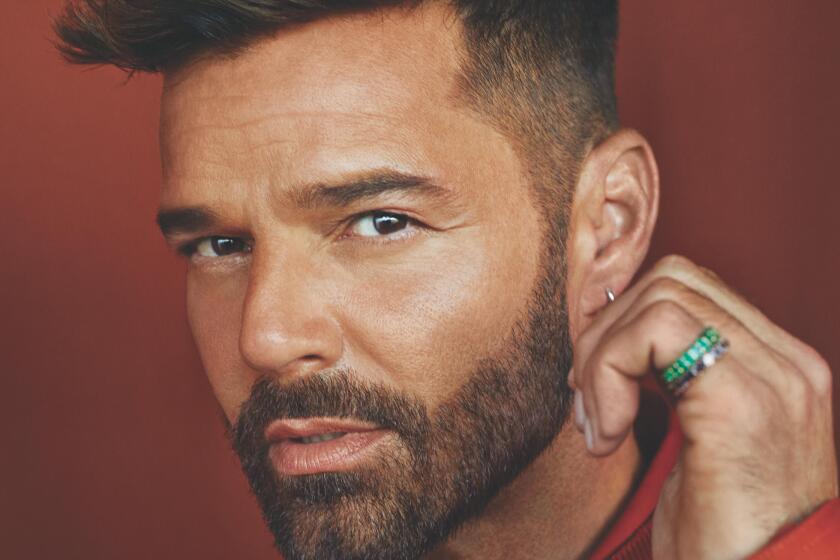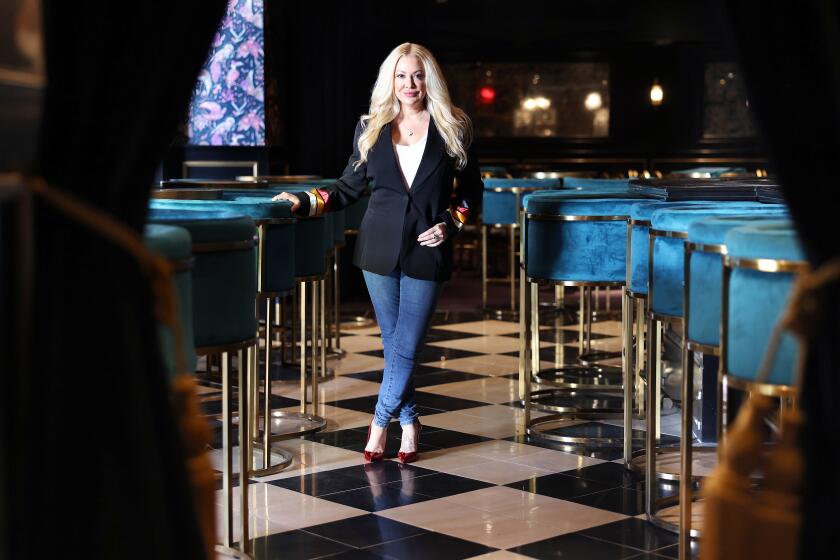Julie Taymor and her ‘Spider-Man’ perspective
Julie Taymor has directed Hollywood movies, won an Emmy Award for an opera production, and earned two Tonys for “The Lion King,” one of Broadway’s biggest and most lucrative musicals ever.
But her artistic roots lie deep in avant-garde and experimental theater. So when the original director and co-creator of “Spider-Man: Turn Off the Dark” spoke Saturday afternoon in Los Angeles before hundreds of theater professionals, the event had the feel of a homecoming, or a reunion of artistic kinfolk.
“We are her theater family, her friends, her colleagues, her peers,” said Philip Himberg, producing artistic director of the Sundance Institute Theatre Program, while introducing Taymor at a conversation hosted by Theatre Communications Group, the nation’s premiere organization representing nonprofit professional theater, which held its 50th-anniversary national conference last week in downtown Los Angeles.
Taymor was warmly received by the crowd in the auditorium at Central Los Angeles High School No. 9, a.k.a. the School of Visual and Performing Arts. At the end of her roughly 90-minute chat with Oberlin College theater and dance professor Roger Copeland, she was given a lengthy standing ovation.
During the conversation, Taymor spoke at length about the subject that was on everyone’s mind: her central role in developing “Spider-Man,” the technically troubled, perpetually gossip-plagued $70-million Broadway musical that finally opened this month to mediocre reviews.
The director, whose departure from the show’s creative team earlier this year became a drama-within-the-drama of “Spider-Man,” acknowledged the difficulties that had been spawned by the musical’s interminable gestation period. “Spider-Man,” which has music by U2’s Bono and the Edge and a book co-written by Taymor, set a record for preview performances.
“You get bored of the show before it even opens, because there’s just been too much talk about it,” she said.
Alluding to the fish-bowl atmosphere that surrounded the making of “Spider-Man,” Copeland asked Taymor what would happen “if every attempt to do something new, really ambitious, maybe even unprecedented, in a Broadway theater runs up against the sort of obstacles that have been hurled in your path at every turn.”
Taymor replied that “Spider-Man” is one of the first big Broadway shows to open in what she called “a new time, where Twitter and Facebook and blogging” subject working artists to relentless scrutiny, months or even years before a new show opens.
“It’s incredibly difficult to be under … a microscope like that,” she said.
Taymor was not asked directly about, nor did she address, the critical shellacking that “Spider-Man” received in its earlier incarnations, for what a number of reviewers saw as its incoherent storytelling and visual overload.
More than once, Copeland took issue with theater critics who’d panned “Spider-Man,” singling out the New York Times’ chief theater critic, Ben Brantley. But Taymor diplomatically declined to take the bait by responding to the show’s detractors or dwelling on the musical’s highly publicized mishaps.
Sounding upbeat and relaxed, she instead went on to discuss numerous other facets of her career, including her extensive use of masks in theater works such as “Juan Darien” and Igor Stravinsky’s opera “Oedipus Rex”; her incorporation of commedia dell’arte techniques; and her big-screen adaptations of Shakespeare’s “The Tempest,” with Helen Mirren in the gender-reversed main role of “Prospera,” and “Titus Andronicus,” with Anthony Hopkins.
Taymor emphasized that certain aesthetic qualities of live theater are markedly different from those of the film medium. Allowing an audience to see the mechanics of Spider-Man’s high-flying apparatus is part of what makes theater engage our imaginations, she said.
“In theater, the artifice exposed is the empowerment,” she said. A similar principle, she suggested in another part of the conversation, is at work when an actor dons a mask in “The Lion King.”
Taymor said that with “Spider-Man,” as with “The Lion King,” she’d wanted to create a show that could appeal to a wide cross-section of theatergoers, and let them “hook in at many different levels.”
But if “The Lion King” had been test-marketed in advance, she said, “there would be no death of Mufasa,” Simba’s father, and there would’ve been no Swahili, Zulu or Xhosa words in the show.
Asked what initially attracted her to the “Spider-Man” project, Taymor said that Bono and the Edge had called her with the proposal, and “the idea of a rock ‘n’ roll musical appealed to me.”
In researching the story of Peter Parker, she read “hundreds of comic books of Spider-Man.” The subject was perfect for musical theater, she said, because, “Peter Parker had everything to sing about — he had yearning, he had exuberance, he had unrequited love.”
She compared Peter Parker to Harry Potter, another orphan who acquires super powers that make him a bit of a freak in the everyday world.
“Pieces that attract me have to do with outsiders,” Taymor said.
More to Read
The biggest entertainment stories
Get our big stories about Hollywood, film, television, music, arts, culture and more right in your inbox as soon as they publish.
You may occasionally receive promotional content from the Los Angeles Times.
